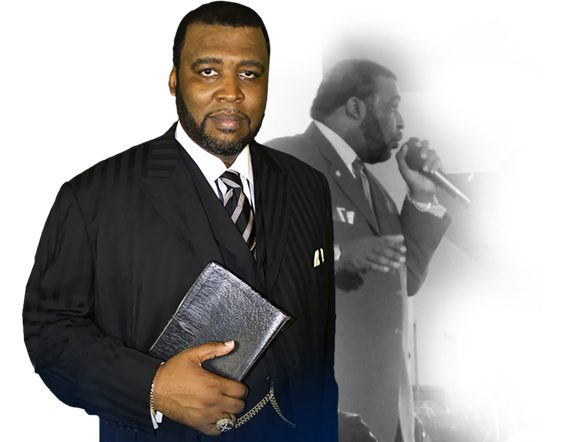
Justin White, pastor of First Christian Church in Columbus, Indiana was arrested today on “felony charges of insurance fraud and contributing to the delinquency of a minor.”
The Republic reports:
A Columbus pastor who claimed his family was robbed of about $11,000 in cash and valuables while he was preaching at church has been arrested on felony charges of insurance fraud and contributing to the delinquency of a minor.
Justin K. White, 38, 3255 Sunrise Drive, senior minister at First Christian Church since May 2011 is accused of arranging with a juvenile to stage the Dec. 18 burglary at his Skyview Estates home on the city’s northeast side in order to file an insurance claim for the lost items, court documents in the case state.
White is accused of having the burglary staged to obtain money from his insurance company to pay a drug debt, court documents state. The charge of contributing to the delinquency of a minor relates to White being accused of seeking to have a juvenile commit an act that would be a felony if committed by an adult, dealing in a narcotic drug.
White was arrested at 6:45 p.m. Friday at his home by Columbus Police detectives, said Lt. Matt Harris, Columbus Police Department spokesman. The charges were filed late Friday afternoon at the Bartholomew County Courthouse, from where a warrant for White’s arrest was issued soon thereafter.
According to White’s bio on the First Christian website: (link no longer active)
Ever since I was a kid, I’ve always anticipated the Sunday morning worship gathering. There’s something thrilling that takes place when God’s people come together to offer our best to the Lord in praise, in fellowship, and in study. One of the most powerful parts of the worship service is when we open the Scriptures together to hear from God Himself. I feel humbled to stand and deliver messages from the Bible; it’s a role that I don’t take lightly, but am so thankful for the opportunity. By nature, I’m a teacher/preacher. I love the Scriptures, and I desire to help others grow in their understanding of its pages as well. My goal at the end of every sermon is not that the congregation remembers a joke, a story, or a particular phrase; my goal is for us all to come to know Christ in a clearer, fuller way.
One of my favorite word-pictures for the Church is found in 1 Corinthians 12:12 when Paul writes, “The body is a unit, though it is made up of many parts; and though all its parts are many, they form one body…” I believe that Jesus Christ is the head of the church…the rest of us form the body. Out of this teaching, I believe the best way to lead is by serving together as a team. I believe that God has given me the gift to preach and communicate His Word, but that gift is not any more important than any other gift of the Spirit. As every part of the body plays a significant role, so every person in the Church is significant as well.
If you are new to the area or simply new to our church, I’d love to get to know you. I think you’ll find FCC a warm, welcoming place to connect with God and with others. Since arriving in Columbus in May of 2011, my wife, Michelle, and I have been so blessed and encouraged by such a loving and growing group of believers. We have three children–(names removed), and a Yorkie we’ve named Oliver. We love to travel, hike, play sports, eat, and share life with others. We are also die-hard fans for the Colts, Reds, and Indiana Hoosiers!
If there is a way I can help you along your spiritual journey, please don’t hesitate to contact me. We’d love to walk with you!
White’s home was “burglarized” on December 18, 2016 while he was busy preaching the word of God. WTHR-13 reported at the time:
While Pastor Justin White and his family were at church Sunday, someone burglarized their Columbus home, stealing about $11,000 in valuables.
They also took something special from one of his children, and now children are helping to replace it.
At First Christian Church in Columbus, while Justin White spent Sunday in the sanctuary, thieves were preying on the pastor’s home.
“I was here preaching. We have two services,” Pastor White explained. “Everything was going on as normal and then we went home.”
The family noticed the garage door was open to their home. They soon learned someone broke in and ransacked the place sometime between 8:30 and noon.
“The fact that somebody knew where we were and chose Sunday morning to come in? It’s hard. It’s hard to swallow,” said Pastor White’s wife, Michelle.
“We went in and my son looked up and saw that our tv was gone and he said, ‘we’ve been robbed!’ Then we started walking through the house and we realized they had taken so much,” Pastor White said.
The criminals stole more than $11,000 worth of valuables, electronics, small appliances and jewelry, plus something even more personal from (name removed), the family’s youngest.
“She uses a big plastic bottle as a piggy bank and she said, ‘dad! My money’s gone’,” Pastor White said. “It was all gone except for one quarter. They left one quarter there. The rest was gone.”
The bottle was filled with change that the 7-year-old had saved to buy Christmas gifts, earned through chores over several months.
“As a mom, that’s really hard. She’s heartbroken and that’s when I get angry and frustrated,” Michelle said. “I can handle the stuff that was taken from us, but my kids are hurting and that’s the hardest part.”
But then this family had something amazing happen.
They started receiving bags full of coins, donated from neighbors and church members – not from the adults, but from the children.
“Ziploc bags full of coins to be put back in my daughter’s piggy bank,” Pastor White said. “One was anonymous. Another was from a staff member. A mom brought her two preschool daughters over and they had bags full of coins for (name removed). The fact that it comes from a child to a child makes it special.”
“That was the first moment that I cried yesterday when they showed up at our door wanting to give,” Michelle said.
….
He’s [White] also forgiven the thieves and says they’re always welcome in the house where he works – the house of God.
“There’s another way. You don’t have to live like this,” Pastor White said. “I feel for whoever did this.”
I guess White’s statement, “There’s another way. You don’t have to live like this. I feel for whoever did this.” has taken on a whole new meaning.
Update
The Republic added the following to their story:
However, as Columbus Police detectives looked into the burglary allegation, they determined there were no signs of forced entry at the home. The front door and two other doors on the ground floor were unlocked and undamaged, they said. And the thief or thieves had left untouched wrapped gifts under the family’s Christmas tree.
Officers later learned after obtaining a search warrant that White made a claim for the burglary loss the same day he reported it through the Cincinnati Insurance Co, seeking $11,460.75 in compensation, court documents state.
In an unrelated investigation, Columbus detectives obtained a search warrant for the home of the parents of the juvenile who was involved, who is only identified by initials in the court documents. The juvenile told officers that he had an addiction problem and had just gotten out of rehabilitation, court documents state. After repeatedly denying that he had burglarized White’s house, he told officers, “Justin has a very bad drug problem, too, and he’s been asking me to get him things for him since I was 15 years old on house arrest,” court documents state.
The juvenile said the “things” were drugs, specifically pain pills and heroin, court documents state.
The accused accomplice said he had met White for spiritual counseling when placed on house arrest at age 15 or 16 for possession of marijuana, court documents stated. White would come to the boy’s house at lunch time while both of his parents were at work, court documents state.
On his second visit, White asked if the boy could get him some marijuana for his aunt who had cancer, court documents stated. During the third counseling session, White asked for prescription pain pills; and eventually, White asked the boy to obtain heroin for him, court documents states.
At the time of the burglary, White owed the juvenile about $1,000, and had met with the juvenile in his car at a business parking lot to set up the burglary, court documents state.
White originally wanted the juvenile to do the burglary Dec. 16 while he was in Ohio for his grandmother’s funeral, but the juvenile rejected the idea because of the short notice, court documents states.
On the day of the burglary, the boy went to the White house with another juvenile, a female, who knocked on the door and the two walked in because it was unlocked. A pile of items was where White had told them it would be, court documents said, except for a large television which was also part of the deal White had made with the youth, court documents state.
The boy told detectives his primary way of communicating with White was through Facebook Messenger, with White deleting the messages after they were read, court documents states.
When detectives called White in to tell him that they had recovered some of the family’s property, officers read him his rights and asked him about his relationship with the male juvenile, court records state.
White told detectives that he had been meeting with the boy about drug-related matters — around the same time White had been seeing a doctor for headaches, and was put on hydrocodone, the court records state.
“And, uh, I had that first pill and I wanted the whole bottle,” White told investigators, court records state.
The doctor continued to refill White’s prescription and he told investigators he became addicted, court records state.
White told detectives he met with one of the accused accomplice’s friends, who was a dealer, and White began buying drugs from him, court records said.
“I’m not proud of this now. It was horrible,” he told detectives, court records state.
White admitted to detectives that on a Sunday night, July 27, 2015 he overdosed on heroin and Columbus Police officers administered naloxone, a drug-overdose antidote, which saved his life but resulted in White being sent to treatment at a Hazelden addiction-treatment center in Minnesota for 32 days in August 2015, court documents state.
White told investigators he was clean after the treatment and had been off drugs ever since, court records state.
During the interview, detectives repeatedly questioned White about his interactions with the juvenile boy and specifically about their communication on Facebook. During the interview, White repeatedly denied setting up the burglary and denied he had relapsed on drugs, court records state.
In January, detectives interviewed another juvenile male, who told them that White had messaged him on Facebook when the accused burglary accomplice was incarcerated in a juvenile detention center and had asked the second male juvenile to obtain pain pills for him, court records state.
That juvenile then began regularly selling pain pills to White along with heroin, court documents stated.
The second male juvenile told detectives that when White was on vacation and he needed drugs, White would send him to the his residence with the password to the garage and was told to get certain items to pawn or trade to the drug dealer, court records state. The boy would then drive to where White was vacationing to deliver the drugs, court records state.
Second Update
From a Sunday, March 26, 2017 The Republic report:
Justin K. White, senior minister at First Christian Church in Columbus, has resigned.
First Christian Church elders used Sunday morning services to announce White’s decision — which was submitted during a meeting with elders March 12, and accepted by them the next day.
White, who was arrested by Columbus police and charged Friday with two felonies — insurance fraud and contributing to the delinquency of a minor, had planned to tell the congregation during services today of his resignation, and explain what he’s been going through the past two years, said Steve Wiggins, chairman of the church’s elder board.
However, with the events that unfolded Friday — White’s arrest, filing of criminal charges against him, and his jailing — Wiggins made the announcement instead of White, he said.
During services this morning, church leaders explained their decision to wait on announcing White’s resignation until most church members returned to normal routines following the two-week spring break from school, with classes resuming Monday.
Wiggins said White told elders he decided to resign because it would be best for the church and himself, Wiggins said.
Third Update
A trial date has been set for a former Columbus pastor facing two felonies involving a burglary he is accused of staging at his home.
A plea of not guilty was entered for Justin K. White, 38, 3255 Sunrise Drive, who appeared Thursday in Bartholomew Circuit Court for an initial hearing before Judge Kelly Benjamin.
The judge set White’s jury trial date for 8:30 a.m. Sept. 5, and a pre-trial hearing was set for 9:30 a.m. Aug. 7.
White listened as Benjamin read the charges against him, felony insurance fraud and contributing to the delinquency of a minor, which stem from a burglary White is accused of staging Dec. 18 at his Skyview Estates home.
White is accused of filing an insurance claim for the burglary when he staged it to obtain money to pay a drug debt, court records state. The charge of contributing to the delinquency of a minor relates to White begin accused of seeking to have a juvenile commit an act that would be a felony if committed by an adult, dealing in a narcotic drug.










